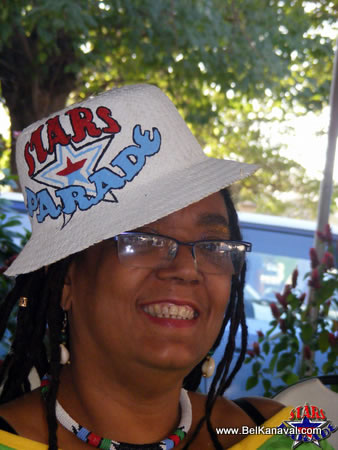 By Scott T. Allison and George R. Goethals
By Scott T. Allison and George R. Goethals
Sadly, many of our most powerful heroes perish at a young age. Some are assassinated (e.g., John F. Kennedy and John Lennon); some are killed in accidents (Princess Diana and Buddy Holly); and some self-destruct (e.g., John Belushi and Heath Ledger). It is unusual to hear of a hero dying at a young age in a natural disaster. But that is exactly what happened recently to Myriam Merlet, who was killed at the age of 53 when her home collapsed on her during the Haitian earthquake on January 12, 2010.
Who was Myriam Merlet? She was a champion of women's rights in a country, Haiti, that desperately needed such a champion. Until 2005 it was not illegal for a man to rape a young girl or woman in Haiti. By Haitian law, rape was considered a crime against honor — a squandering of virginity that was often settled with a payment to the victim’s family. Sometimes judges suggested as a reparation that the rapist marry the victim. All this changed in Haiti because of the collective efforts of women activists such as Myriam Merlet, Magalie Marcelin, and Anne Marie Coriolan — all of whom perished in the quake.
In an essay written in 2001, Myriam Merlet explained her calling to help Haitian women. Merlet lived and was educated abroad until the age of 29, when she felt "the need to be part of something. This couldn't be the black cause in the United States or the immigration cause in Canada. It could only be the cause of the Haitian people."
Merlet was especially interested in remedying arbitrarily defined differences in power and status among different groups of people: "I look at things through the eyes of women, very conscious of the roles, limitations, and stereotypes imposed on us." Merlot wanted everyone, men and women, to reach their full potential as human beings: "The idea is to give women the opportunity to grow so that we may end up more complete human beings who can really change things€¦. Individuals should have the opportunity to be complete human beings, women as well as men, youth as well as old people, the lame as well as the healthy."
As with most heroes, Merlet was not deterred by the challenges of achieving her vision of an egalitarian society. "Of course it's a utopian dream," she said. "The more people share in the same dream, as in Martin Luther King's I have a dream speech, the more likely we'll achieve it collectively. Often I ask myself if it's possible to make this dream a reality when it's not shared by others. More people must be willing to take a different course, though some might call them crazy.
"Of course it's a utopian dream," she said. "The more people share in the same dream, as in Martin Luther King's I have a dream speech, the more likely we'll achieve it collectively. Often I ask myself if it's possible to make this dream a reality when it's not shared by others. More people must be willing to take a different course, though some might call them crazy.
"It's hard and frustrating because you find yourself alone. I don't mean to say that I'm responsible for the problems [of Haiti]. But still, as a Haitian woman, I must make an effort so that all together we can extricate ourselves from them."
In Haiti, a hero has been lost. Although there is concern in Haiti about the future of the rights of women and girls, we are optimistic that someone will fill the void. We have found that heroes such as Merlet leave an indelible mark on the societies they change, and one of those marks is the seed of heroism that they plant in others. We eagerly await the future fruits of Merlet's great vision and labors.
– – – – – –
Do you have a hero that you would like us to profile? Please send your suggestions to Scott T. Allison (sallison@richmond.edu) or to George R. Goethals (ggoethal@richmond.edu).
Like this:
Like Loading...

